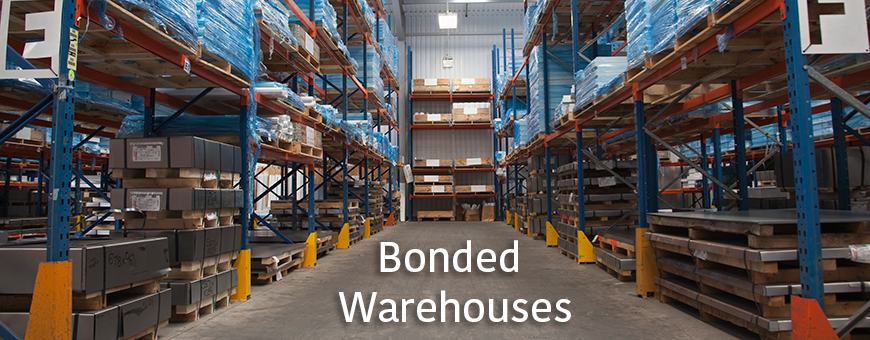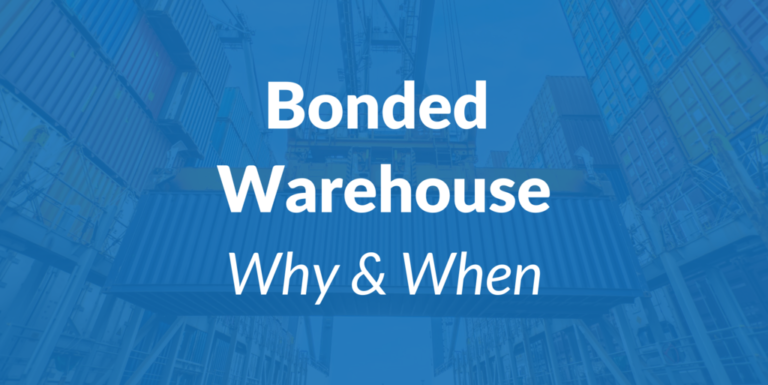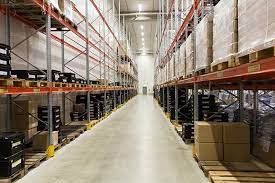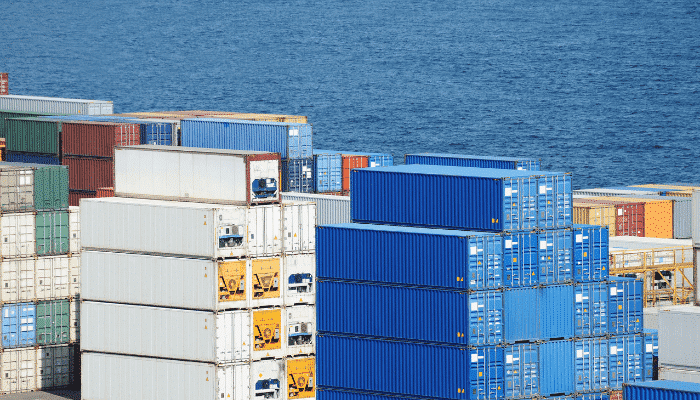This blog post tells you everything you need to know about bonded warehouse in China. How it works and what is the difference between bonded warehouse and free-trade zone
Section: What is Bonded Warehouse?
https://www.maxtoptek.com/category/china-warehouse/The bonded warehouse refers to the warehouse. In which the bonded goods approved by the Customs are stored in a special station. This kind of warehouse is limited to the storage of materials for processing.
Processing and re-export of imported materials, temporary storage of goods after re-export. And goods that have been approved by the customs to defer the tax payment procedures. There are three main types of bonded warehouse in our country:
1. Bonded warehouse for transit trade. Import and export goods under transit trade may be exempted from import. And export duties and other taxes. If it is necessary to change the packaging and add labels. It must be done under the supervision of the customs.
2. Bonded warehouse for processing trade materials. If the spare materials stored in the bonded warehouse for duty-free import under processing of incoming materials. Or processing of imported materials are extracted and processed for re-export after being approved by the Customs. The Customs shall levy or exempt duties on the original imported materials according to the actual export quantity.
3. Consignment maintenance bonded warehouse. The imported maintenance spare parts which provide after-sales service for the imported advanced technology. And equipment may be stored in the bonded warehouse without going through the import formalities.
The storage of bonded goods in the bonded warehouse is generally limited to one year. If there are special circumstances, it may be extended appropriately after customs approval.
To apply for the operation of a bonded warehouse. An application shall be filed with the local Customs. On the strength of the business license issued by the administrative department for industry.
And commerce and the approval letter from the competent economic. And trade department. Only after examination by the Customs can the bonded business be permitted. If the relevant provisions and conditions are met.

The bonded warehouses in China are located in the following places:
Shanghai, Guangzhou, Shenzhen, Tianjin, Dalian and Xiamen.
The bonded warehouses in these places are divided into two types. The first is the bonded warehouse for foreign-trade. And import and export of goods. Such as Shanghai free trade zone, which was established in 2013.
Its main functions are to provide a platform for foreign companies to engage in international trade activities. And promote their business development by providing one-stop services such as tax rebates and other benefits.
The second is the bonded warehouse for domestic trade. The main function of this type of bonded warehouse is to provide a platform for enterprises to engage in domestic trade activities. Such as the collection, storage and processing of goods.
The third is the bonded warehouse for transshipment. The main function of this type of bonded warehouse is to provide a platform for enterprises to engage in cross-border trade. And processing activities.

Chapter 3: Function of Bonded Warehouse
1. It can shorten the purchasing time of imported raw materials. We will reduce the appropriation of funds for imports. The establishment of bonded warehouse. Can invite foreign sellers to store goods in the bonded warehouse.
Domestic importers are ready to buy raw materials in small batches and batches as needed. Shorten procurement time and reduce capital occupation. The production cycle is greatly shortened, convenient for enterprises to expand production.
2. The amount of deposit paid by enterprises can be reduced. Effectively improve the efficiency of enterprise funds. Processing trade import of national restricted goods, the customs shall pay 50% of the tax deposit.
The establishment of bonded warehouse, enterprises can purchase raw materials in small batches. Shorten the cycle from imported raw materials to finished products. Thus reducing the amount of margin payment and improving the utilization rate of funds.
3. An import logistics distribution center can be built. Foreign goods can be stored in bonded warehouses. Foreign investors can be organized to directly store imported raw materials needed by local enterprises in bonded warehouses.
Enterprises need to import raw materials, directly to the bonded warehouse procurement. Can form a foreign goods market within the territory. The bonded warehouse into an import logistics distribution center.

Chapter 4: What kinds of goods can be stored in a bonded warehouse?
https://www.maxtoptek.com/category/china-warehouse/Goods allowed to be stored in bonded warehouses fall into three categories:
One is for processing trade (in, processing) imported materials.
Second, the competent foreign economic and trade department approves the sale of foreign commodities on consignment. Foreign product maintenance business. Foreign exchange duty free goods business and bonded means of production market import goods.
Third, transit trade goods, goods deposited by foreign investors and fuel, materials and spare parts for international sailing ships.
Chapter 5: Reasons for Choosing Bonded Warehouse
Bonded warehouse is a good choice for those who do not have much experience in the import and export trade. The reason is that they can avoid many of the risks associated with exporting goods.
Bonded warehouse facilities are relatively safe and secure. Which makes them ideal for people who want to avoid theft or damage to their products during shipment. Bonded warehouses also provide storage space for goods that will be sold at a later date. As well as providing insurance coverage on shipments made by ocean freight carriers.
One of the most important benefits of using bonded warehouses is that they offer insurance coverage for your goods. They also provide storage space for products that will be sold at a later date. Bonded warehouse facilities are relatively safe and secure. Which makes them ideal for people who want to avoid theft or damage to their products during shipment.
Bonded warehouses can provide a wide range of services, including:
-Storage space for goods that will be sold at a later date.
-Insurance coverage on shipments made by ocean freight carriers.
-Customs clearance and processing.
-Customs classification.
-Inspection and testing of goods. Bonded warehouses are commonly used for.
-Importing goods that are too large or heavy to be shipped by air freight carrier.
-Sending high-value, low-volume shipments overseas.
Chapter 6: Cost of Bonded Warehouse
The cost of a bonded warehouse depends on several factors, including:
-The type of goods being stored.
-Where in the U.S. the warehouse is located.
-The size and volume capacity needed for your shipment(s).
Bonded warehouses can be used to store any kind of perishable or non-perishable product, including:
-Electronics and appliances.
-Apparel items (such as clothing or shoes).
-Machinery and equipment. -Food products (such as fresh fruits, vegetables, or meats).
-Construction materials (such as wood, stone, or bricks).
The cost of renting a bonded warehouse can vary greatly depending on the area you’re located in. And what kind of goods are being stored. For example:
-The average monthly rent for a warehouse in California is $2,000-$3,000 per month.
-The average monthly rent for a warehouse in New York is $3,000-$5,000 per month.
-The average monthly rent for a warehouse in Texas is $1,000-$2,500 per month.
The cost of a bonded warehouse depends on many factors. Including where the facility is located and how large it is. For example, in the United States, warehouse facilities can range from $1 to $2 per square foot per month.

Chapter 7: How long can goods store in a bonded warehouse?
-Goods can be stored in a warehouse for an indefinite period of time, as long as the owner pays monthly rent.
-Warehouses are used to store goods that need to be shipped overseas or across the country. For example:
-The average length of time it takes for a product to enter a bonded warehouse is 60 days.
-The average time it takes for goods to leave the United States and return is 90 days.
-In order to receive their goods, importers must pay duties and taxes. The amount of time it takes for goods to leave a bonded warehouse depends on the type of commodity being imported. For example:
-If you are importing consumer products such as clothing or electronics. It can take anywhere from 1-3 days after entering the bonded warehouse before they are ready for shipping.
The length of time that an item can be stored in a bonded warehouse will vary depending on the country. But it is usually at least 1-2 years. However, if you’re storing items that are perishable (such as food). Then the amount of time they can stay in storage will be shorter (generally less than 6 months).
Chapter 8: Pros and Cons of Bonded Warehouse
Benefits of Bonded Warehouses:
-You can avoid paying duties and taxes up front on the items that you import.
-Your goods are protected from damage or theft while in storage.
-It can save time as you don’t have to wait for clearance before shipping your items out.
-If you are importing high-value goods. Then it is often cheaper than having them shipped directly from overseas.
-You can use a bonded warehouse to store goods for longer periods of time (if necessary).
Disadvantages:
-You need to pay fees and taxes at the end of your import before you can sell or send your items out.
-You may have to provide extra information such as proof of ownership, value and quantity.
-It can be more complicated to get your goods out of storage if you need them urgently.
-You will have to wait for the warehouse to be cleared before you can use it.
-If you are importing high-value goods. Then it is often more expensive than having them shipped directly from overseas.
A bonded warehouse is a secure storage facility. Where you can store goods before they are released for sale in the UK. A free trade zone is a designated area. Where there are no customs duties or import taxes on goods that are brought into the zone. You will still have to pay any other duties and taxes (such as VAT if you sell your items).
-If you store goods in a bonded warehouse. Then you can sell them more quickly than if they are in free trade zones.
-If you store goods in a bonded warehouse. Then you don’t have to pay import duty on them when they arrive in the UK.
This means that if you sell goods that have been in a bonded warehouse. Then you are not legally required to pay VAT on them.


Conclusion:
If you want to lower your costs, you should consider the bonded warehouse.
-If you want to sell your goods quickly, then a bonded warehouse will be helpful.
-If you want to avoid paying import duty on your goods, then a bonded warehouse may be the best option for you.